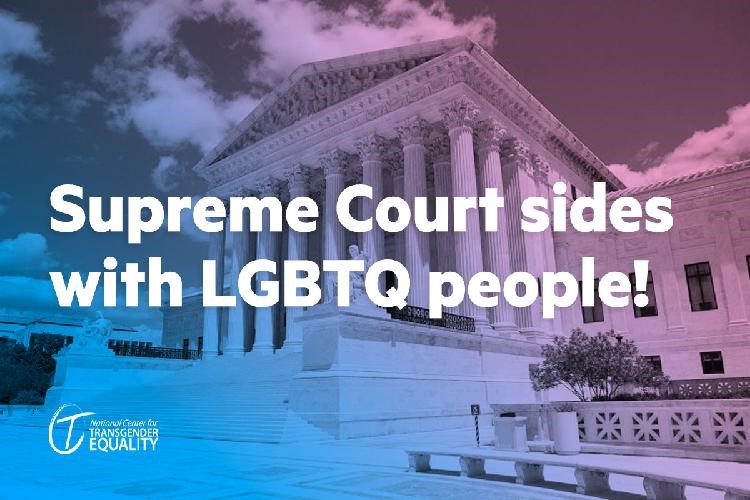Supreme Court Delivers Landmark Victory!

In this moment of the national COVID-19 health crisis and vitally important nationwide demonstrations in support of Black lives and against systemic racism, it’s heartening to have good news from the Supreme Court! These decisions affirm and support the trend we have already seen in response to the pandemic—Americans coming together for the good of the nation. The Supreme Court has ruled that employers don’t have a right to discriminate against LGBTQ people in the workplace.
In the cases of R.G. & G.R. Harris Funeral Homes Inc. v. Equal Employment Opportunity Commission, Altitude Express Inc. v. Zarda and Bostock v. Clayton County, Georgia, the Supreme Court confirmed that a federal sex discrimination law prohibits employers from making decisions based on sexual orientation or gender identity.
“The Supreme Court’s decision provides the nation with great news during a time when it is sorely needed. To hear the highest court in the land say LGBTQ people are, and should be, protected from discrimination under federal law is a historic moment,” said Mara Keisling, executive director of the National Center for Transgender Equality. “We still have more work to do to ensure that transgender people can fully live their lives without fear of discrimination for being who they are.”
The Court’s decisions mark a huge stride in the fight to end discrimination against LGBTQ people. This victory has been shaped by decades-long work from many LGBTQ people and others fighting against discrimination at work, at school, and in public places.
“Aimee Stephens, Don Zarda and Gerald Bostock will have a place in the history books as people who stood up against discrimination and paved the way for groups historically excluded from legal protection,” Keisling said.
Stephens died May 12 at her home in Michigan before the decision was released. She was 59.
“Aimee was fired for being transgender, and she chose to stand up for herself and for all transgender people. Aimee was deeply committed to justice and fairness and an incredible person. She is a hero,” Keisling said.
The rulings affirm nationwide protections in the workplace, but important gaps in our civil rights laws remain. Congress should make absolutely clear that the same protections apply in housing and education, and extend them for the first time in public spaces and services and federally funded programs by passing the Equality Act.

